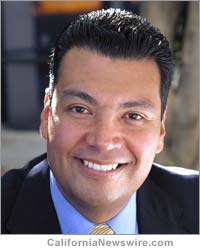
Also attending was Geoffrey G. Chester, PhD, the California director of Oceana, the largest international organization focused solely on ocean conservation.
SB 1138 would make it unlawful for any person to knowingly sell mislabeled seafood. While spending on seafood in the United States has grown to more than $80 billion annually, state law does not provide clear guidance regarding accurate labeling of seafood. The lack of standards has led to high rates of mislabeling throughout our state. In a recent survey by Oceana, 84% of Southern California sushi samples were mislabeled and 58% of restaurants visited in Northern California mislabeled their fish offerings.
SB 1138 is modeled after similar legislation passed in the state of Washington. The bill is scheduled to be heard by the Senate Health Committee on Wednesday, April 9, at 1:30 p.m. in Room 4203 of the State Capitol.
“SB 1138 will address the growing problem of seafood mislabeling. To protect our health, economy and oceans it is essential that seafood be labeled accurately,” said Senator Alex Padilla. “Honesty is always the best policy,” added Padilla.
“Seafood consumers need accurate information about what they are buying to make informed decisions about their own health and the health of the ocean,” said Dr. Geoff Shester, California Campaign Director of Oceana. “Senator Padilla’s bill will ensure California consumers don’t get duped when buying seafood.”
Taylor’s Market co-owner and head butcher, Danny Johnson, said that Taylor’s Market has made a conscious effort to buy their meats and seafood from sustainable sources, “Our customers support the Monterey Bay Aquarium Seafood Watch’s blue eco-label in our store and restaurant. We’re very lucky that our customers understand what that means and why it’s important.”
In 2013, Oceana released the results of a nationwide study on fish sampled at retail outlets, such as restaurants, grocery stores and sushi bars including in San Francisco, Los Angeles and Monterey and found:
• 84% of sushi samples were mislabeled in Southern California
• 58% of restaurants visited in Northern California sold mislabeled fish
• 52% of all fish sampled were mislabeled in Los Angeles and Orange Counties
• 38% of all fish sampled were mislabeled in Northern California
• 27% of grocery stores visited in Northern California sold mislabeled fish
• Southern California leads the nation in mislabeled fish
“The Oceana study revealed that half the tested seafood sold in California is routinely mislabeled. SB 1138 will change that. Honesty in seafood labeling is important to both our health and our oceans,” said Senator Alex Padilla. “It’s quite simple, when the menu says halibut, we should actually be served halibut. Seafood labeled “red snapper” should actually be red snapper,” added Senator Padilla.
While seafood is an excellent choice in a healthy diet, seafood mislabeling can lead to the consumption of seafood that is unhealthy and potentially dangerous. Certain species of fish can have unhealthy levels of mercury or can cause severe allergic reactions. The U.S. Environmental Protection Agency gives a clear warning about the dangers of mercury to fetuses, infants, and children. The FDA recommends that women of childbearing age, pregnant or breastfeeding avoid eating certain fish such as swordfish and shark.
Seafood mislabeling undermines conservation efforts and threatens at-risk species. Conservation efforts rely on an informed public making responsible and sustainable choices. However, it is difficult to make sound choices if seafood is mislabeled. Between 1950 and 2006 the world’s annual fishing haul more than quadrupled, from 19 million tons to 87 million tons. The Census of Marine Life, a decade-long international survey of ocean life completed in 2010, estimated that 90% of the big fish had disappeared from the world’s oceans, victims primarily of overfishing.
Senator Alex Padilla, 40, graduated from MIT with a degree in Mechanical Engineering. He currently serves on the Board of MIT and is President of the National Association of Latino Elected and Appointed Officials. He is Chair of the Senate Energy, Utilities and Communications Committee and represents the more than 1,100,000 residents of the 20th State Senate District in Los Angeles.







